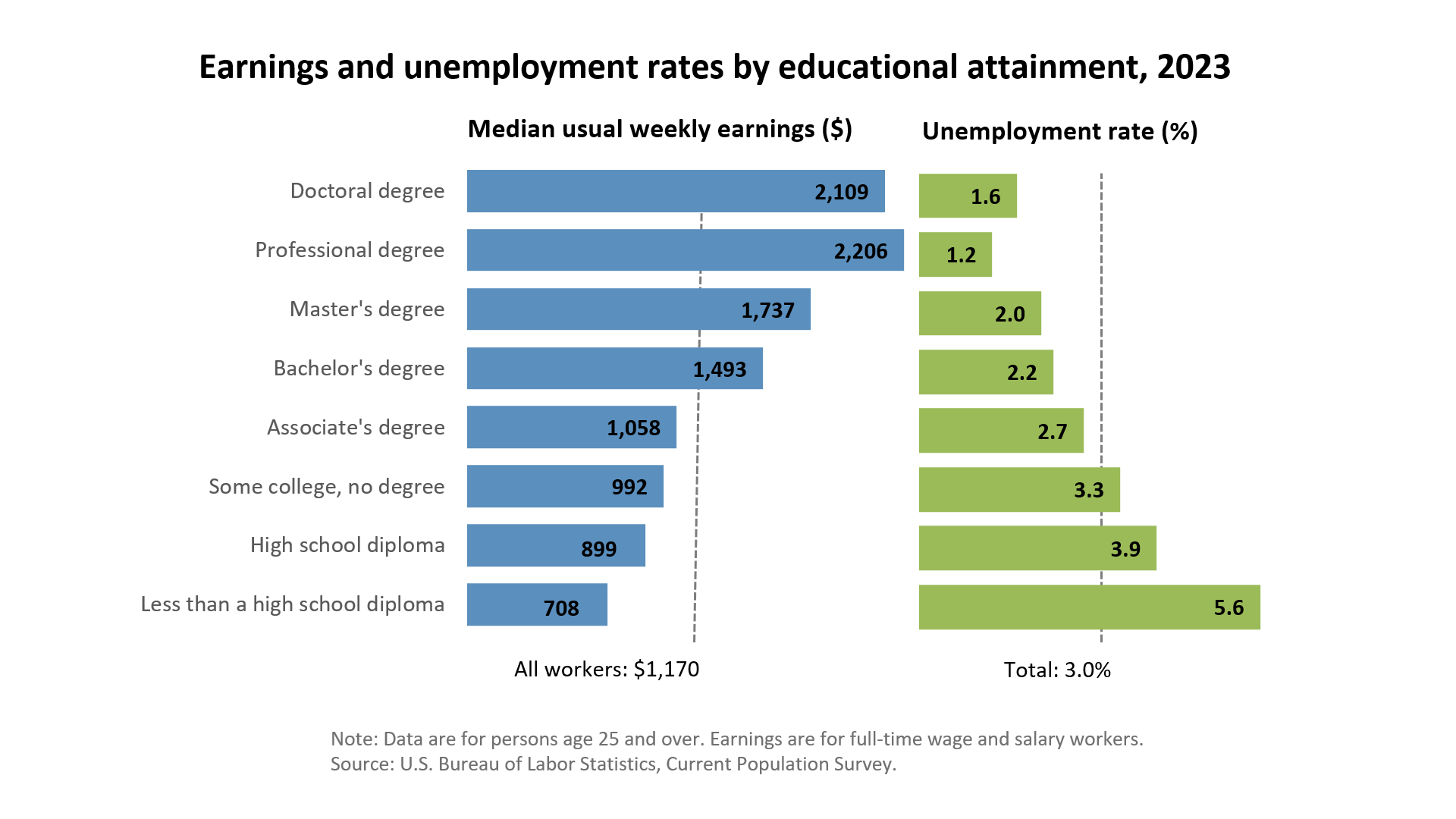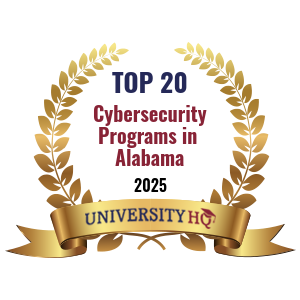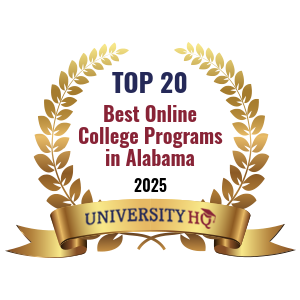Get Matched With Online Colleges
Jacksonville State University (JSU) is a public institution located in Jacksonville, Alabama in the Appalachian foothills. Founded in 1883 as Jacksonville State Normal School, it went through several name changes before beginning its current operation in 1966. The majority of students enrolled attend classes on the school’s main campus, but the institution does have two alternative locations: Little River Canyon Center in Fort Payne and McClellan Center in Anniston. Core values include excellence, innovation, engagement, stewardship, integrity, and inclusivity.
Search All Programs
Overview of Jacksonville State University (JSU)
The university grew from humble beginnings into the state’s regional university with the highest percentage of accredited programs. Jacksonville State University recently tied 38th among Top Public Schools in the South in the U.S. News & World Report 2022. It also tied 77th among Best Regional Universities in the South and ranked 91 in the South among Top Performers on Social Mobility.
The school’s mascot is the Gamecock and students can participate in 17 different sporting events. Total enrollment as of fall 2021 was 9,540, of which approximately 7,747 were pursuing undergraduate degrees. The university also employs 348 full-time and 98 part-time faculty members, all of whom provide instruction. Additionally, there are about 70 graduate assistants providing classroom support. This makes the student-to-faculty ration 21:1, which is a little higher than the national average for the nation. This could mean that students have to work harder to stand out among others and/or interact with their professors one-on-one.
General Information
| School Type | Public |
|---|---|
| Campus Setting | Suburb: Small |
| Campus Housing | Yes |
| Student Faculty Ratio | 19:1 |
| Graduation Rate | 50% |
| Year Founded | 1883 |

Student Enrollment
Total Students9,540
8,067
1,473
Undergraduate Student
Male 3,227
Female 4,840
Graduate Student
Male 589
Female 884
Explore Map
Top Rankings For Jacksonville State University
JSU Acceptance Rate and Admissions
APPLICATIONS10,483
ACCEPTANCE7,967
Acceptance Rate76%
Enrollment 1,832
| Admissions | |
|---|---|
| Application Fee | $35 |
| High School GPA | Required |
| High School Rank | NA |
| High School Transcripts | Required |
| College Prep Courses | NA |
| Recommendations | NA |
| SAT/ACT | Considered But Not Required |
| TOEFL (Test of English as a Foreign Language) | Required |
| Application Deadline | Rolling |
| Common Application Accepted | No |
JSU Tuition Cost & Financial Aid
At Jacksonville State University (JSU), undergraduate tuition is based on residency status, academic year, and the number of credit hours taken. In-state freshmen, sophomores, and juniors will pay $333 per credit hour for 1-11 credit hours, $4995 for 12-18 credit hours, or $4,995 plus $333 per credit hour for 19 or more credit hours during the 2022-2023 academic year. Out-of-state freshmen, sophomores, and juniors will pay $665 per credit hour for 1-11 credit hours, $9,975 for 12-18 credit hours, or $9,975 plus $665 per credit hour for 19 or more credit hours. Seniors will pay $333 or $665 per hour, depending on residency status.
It's important to note that those taking graduate-level classes pay different rates. In-state graduate students will pay $410 per credit hour in the 2022-2023 academic year. Out-of-state graduate students, on the other hand, will pay $820 per credit hour. Those studying online will pay $410 per credit hour.
Notably, Jacksonville State University does offer some graduate degree specialized fixed-rate tuition and fee packages for certain programs. Those enrolled in the Master of Fine Arts (MFA) program, for example, will pay a flat rate of $400 per credit hour, which amounts to $4,000 in total savings.
Doctoral tuition rates for the 2022-2023 academic year differ depending on the program selected, with rates ranging between $500 and $520 per credit hour. Dual enrollment is also available. Additionally, active duty military members are entitled to a discounted rate of $250 per credit for undergraduate, graduate, and distance learning classes.
Prospective students should be aware that there are other costs associated with earning degrees at Jacksonville State University.
In addition to tuition, students will also pay the following fees:
- Application for Admission Fee
- Audit Fee
- ID Card Insurance Fee
- Orientation Fee
- Vehicle Registration
- Additional Housing Fee
Those who choose to live on campus will also need to pay for some type of room and board, which will vary depending on the time of year.
Jacksonville State University does recommend that students fill out and submit the Free Application for Federal Student Aid (FAFSA). The FAFSA is used to determine eligibility for grants, need-based scholarships, loans, and work-study programs. Individuals who experience a significant change in finances are eligible to have their financial aid offer re-evaluated by the institution. In total, 99% of those enrolled at the school receive some type of financial aid. While most assistance comes in the forms of grants and scholarships, 60% of students still require loans in order to attend.
| Average net price | 2020-2021 |
|---|---|
| Net Price | $13,426 |
| Average Total Aid | $8,488 |
| Students Receiving Financial Aid | 99% |
| Room & Board | $8,320 |
Sticker Price
- Tuition In-State - $11,120
- Tuition Out-of-State - $20,840
- Books and Supplies - $1,196
- Room & Board - $8,320
- Other - $1,997
Academics
Jacksonville State University is a learning-centered community that provides distinctive educational, cultural, and social experiences. The goal is to prepare students to become competent, ethical professionals, as well as engaged, responsible, and global citizens. The institution has been recognized nationally for excellence in offering a transformational learning environment that supports student success and engagement.
Students can choose between 95 academic programs and concentrations at the bachelor’s, master’s, or doctoral levels, as well as some graduate certificates. Classes may be available face-to-face, online, or in a blended format. Notably, the school offers more than 40 online programs.
All major options fall under one of the following colleges:
- College of Arts and Humanities
- College of Business and Industry
- College of Education and Professional Studies
- College of Health Professions and Wellness
- College of Science and Mathematics
- College of Social and Behavioral Sciences
For first-time, full-time students who began pursuing bachelor’s degrees at Jacksonville State University in fall 2019, the retention rate was 73%. Retention for part-time students during this same timeframe was 50%. These statistics show that most students were pleased with their academic experiences enough to return for a second year of school in 2020.
The overall graduation rate in 2020 was 50%, with 27% of tracked students transferring out before their final academic year. It’s worth mentioning that only 50% of entering students fit the criteria for this survey, as the only individuals counted were first-time students attending the university full-time. This data is significant because it highlights the percentage of students who succeed in earning their degrees or certificates within 150% of the standard completion time.
All of academic programs offered at Jacksonville State University are accredited by the Southern Association of Colleges and Schools Commission on Colleges (SACSCOC), which is recognized by the United States Department of Education. The university also offers many programs that have received specialized accreditation from state, regional, and/or national professional associations and boards.
Retention
Rate
4 year
Graduation
Rate
6 year
Graduation
Rate
Student Population Total
Student Population 9,540
8,067
1,473
Most Popular Programs & Majors
(# of Diplomas Awarded by Subject)
| Health Professions and Related Programs | 410 Total Graduates / 28% |
|---|---|
| Registered Nursing/Registered Nurse | 313 Graduates |
| Health and Wellness, General | 39 Graduates |
| Respiratory Care Therapy/Therapist | 58 Graduates |
| All Business Majors | 204 Total Graduates / 14% |
| Business Administration and Management, General | 72 Graduates |
| Marketing/Marketing Management, General | 50 Graduates |
| Accounting | 49 Graduates |
| Finance, General | 33 Graduates |
| Homeland Security, Law Enforcement, Firefighting and Related Protective Services | 103 Total Graduates / 7% |
| Criminalistics and Criminal Science | 45 Graduates |
| Crisis/Emergency/Disaster Management | 35 Graduates |
| Criminal Justice/Safety Studies | 23 Graduates |
| Liberal Arts and Sciences, General Studies and Humanities | 102 Total Graduates / 7% |
| Liberal Arts and Sciences/Liberal Studies | 102 Graduates |
| All Education Majors | 92 Total Graduates / 6% |
| Elementary Education and Teaching | 65 Graduates |
| Special Education and Teaching, General | 17 Graduates |
| Physical Education Teaching and Coaching | 10 Graduates |
| All Other Diplomas | 38% |
Outcome & Salary
The Department of Institutional Research and Assessment collects outcomes data by having students who are graduating fill out Student Exit Surveys. In 2020, of 1,364 graduates, 602 were moving into full-time employment. Another 84 had acquired part-time jobs, while 678 were yet to receive job offers. Notably, results varied depending on the college. Almost 72% of those graduating from programs in Education and Human Development had offers for full or part-time employment, while less than 34% of those graduating from Science, Engineering, and Technology programs were employed.
| Graduates Salary | |
|---|---|
| College Grads Early Career Salary | $49,400 |
| College Grads Average Salary | $66,000 |
| College Grads Mid Career Salary | $91,000 |
| Return on Investment (ROI) | |
|---|---|
| 10 Year Salary Earnings Potential | $660,000 |
| 20 Year Salary Earnings Potential | $1,570,000 |
| Cost of Education (Net Price) 4 Year | $53,704 |
| 10 Year Projected ROI | $606,296 |
| 20 Year Projected ROI | $1,516,296 |
| No College Education Salary Comparison | |
|---|---|
| National Average Salary | $38,792 |
| 10 Year Projected Income | $387,920 |
| 20 Year Projected Income | $775,840 |

Photos & Videos
Related Top College Resources










